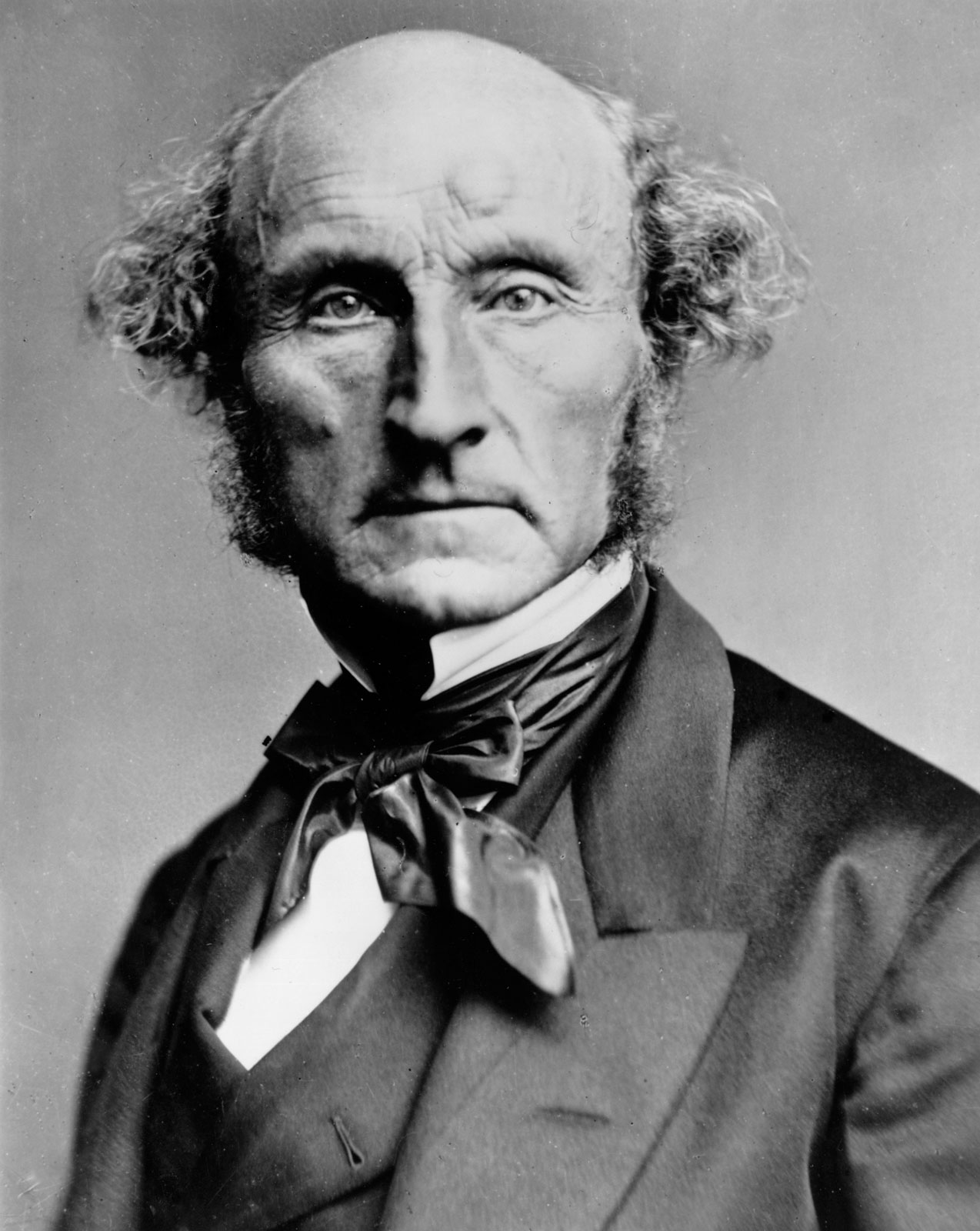Fuente: Sobre la Libertad.
Frases célebres de John Stuart Mill
“El valor de una nación no es otra cosa que el valor de los individuos que la componen.”
Fuente: Paráfrasis de Lógica -A system on Logics-, 1843)
Frases de vida de John Stuart Mill
“Los principales elementos que integran una vida satisfecha son dos: la tranquilidad y el estímulo.”
Fuente: El Utilitarismo, capítulo 2: «¿Qué es el utilitarismo?».
John Stuart Mill Frases y Citas
“No importa si no es más bello o si no conviene, el cambio se hace por el cambio mismo.”
Fuente: Sobre la Libertad.
“Al estudiante que nunca se le pide que haga lo que no puede, nunca hace lo que puede.”
Original: «A pupil from whom nothing is ever demanded which he cannot do never does all he can».
Fuente: Mill, John Stuart. Autobiography. Editorial Simon and Schuster, 2013. ISBN 9781627936248.
Fuente: Childhood and Early Education, capítulo 1.
Fuente: Principios de Economía Política, p. 199.
Fuente: El Utilitarismo, capítulo 2: ¿Qué es el utilitarismo?.
“Todo ser humano debidamente educado siente un sincero interés por el bien público.”
Fuente: El Utilitarismo.
Fuente: Sobre la Libertad.
Principles of Political Economy: And Chapters on Socialism
Fuente: Public and Parliamentary Speeches, 31, May, 1866.
John Stuart Mill: Frases en inglés
Fuente: Autobiography (1873)
Fuente: https://archive.org/details/autobiography01mill/page/162/mode/1up p. 162
Fuente: On Representative Government (1861), Ch. VII: Of True and False Democracy; Representation of All, and Representation of the Majority only (p. 247)
“Coleridge”. London and Westminster Review. (March 1840).
Fuente: Autobiography (1873)
https://archive.org/details/autobiography01mill/page/32/mode/1up pp. 32–33
Fuente: On Representative Government (1861), Ch. II: The Criterion of a Good Form of Government (p. 167)
Fuente: https://archive.org/details/autobiography01mill/page/45/mode/1up pp. 45–46
Fuente: Autobiography (1873), Ch. 1: Childhood and Early Education (pp. 21-22)
Fuente: Autobiography (1873)
Fuente: https://archive.org/details/autobiography01mill/page/222/mode/1up p. 222
"The Spirit of the Age, I", Examiner (9 January 1831), p. 20 Full text online http://oll.libertyfund.org/title/256/50650
Fuente: On Liberty (1859), Ch. III: Of Individuality, As One of the Elements of Well-Being
“A society that will trade a little liberty for a little order will lose both, and deserve neither.”
Also attributed to Thomas Jefferson, this is a modern paraphrase of a statement of Benjamin Franklin: "Those who would give up Essential Liberty to purchase a little Temporary Safety, deserve neither Liberty nor Safety."
Misattributed
Fuente: Autobiography (1873), Ch. 3: Last Stage of Education and First of Self-Education (pp. 45-46)
Principles of Political Economy (1848), Book IV, Chapter VI, §3, p. 516
Fuente: On Representative Government (1861), Ch. XVI: Of Nationality, As Connected with Representative Government (p. 382)
Fuente: A System of Logic (1843), p. 11: Cited in Gaines (1976) "Foundations of fuzzy reasoning" in: International Journal of Man-Machine Studies 8(6), p. 623
Fuente: Autobiography (1873), Ch. 7: General View of the Remainder of My Life (p. 184)
Principles of Political Economy (1848), Book V, Chapter XI, §13
Fuente: On Representative Government (1861), Ch. III: The Ideally Best Polity
Fuente: https://archive.org/details/autobiography01mill/page/74/mode/1up pp. 74-75
Fuente: Autobiography (1873)
Fuente: https://archive.org/details/autobiography01mill/page/125/mode/1up p. 125
Fuente: Autobiography (1873)
https://archive.org/details/autobiography01mill/page/31/mode/1up p. 31
“A pupil from whom nothing is ever demanded which he cannot do never does all he can.”
Fuente: Autobiography (1873), Ch. 1: Childhood and Early Education (p. 32 http://archive.org/stream/autobiographymil00milluoft#page/32/mode/2up/search/%22a+pupil+from+whom+nothing+is+ever+demanded+which+he+cannot+do+never+does+all+he+can%22)
Fuente: https://archive.org/details/autobiography01mill/page/59/mode/1up p. 59
